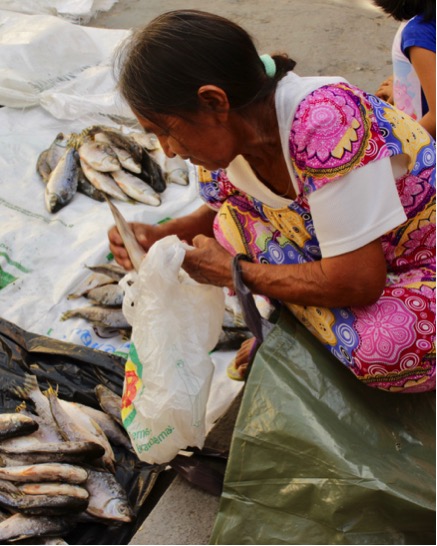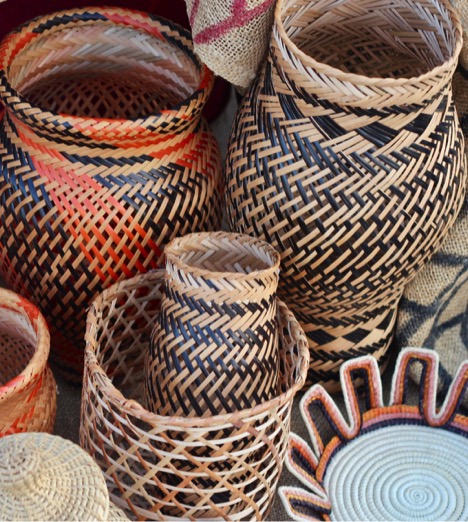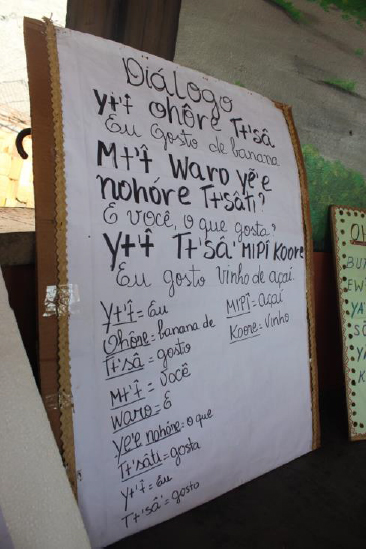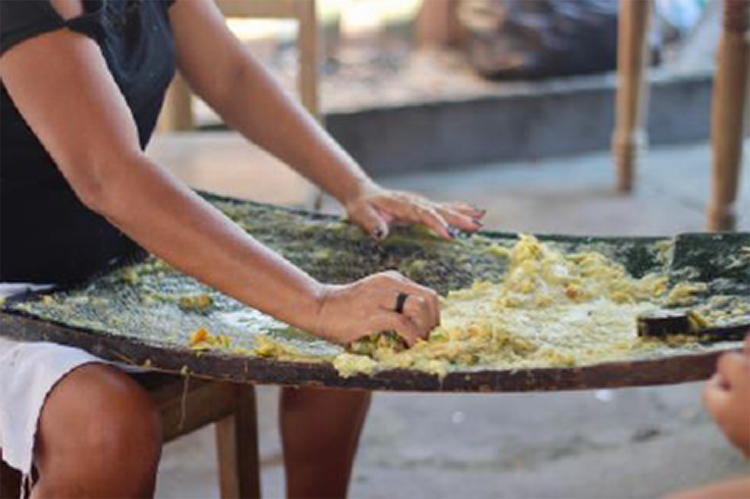Gender, Indigeneity, and Activism: An Intergenerational Look at Indigenous Women’s Organizing in Manaus, Brazil
Article and photos by Emily Masucci, Tinker Grantee; master’s candidate, Department of Anthropology

With the aid of the Tinker Field Research Grant, I traveled to Manaus, Brazil, to explore the ways in which members of AMIA (Association of Indigenous Women of Amazonas) navigate their focus from work in domestic labor roles to work associated with activism, community leadership, and indigenous politics. With the foundation of AMIA in 1987, indigenous women sought to institutionally address issues of structural gender violence, women’s education, domestic abuse, and quality of life—concerns they felt had been overlooked by the predominantly male indigenous organizations in the region. Today, with support from international NGOs and revenue from artisan handcrafts, AMIA advocates for indigenous women’s rights at regional and national manifestations, holds weekly Tukano and Portuguese language classes, provides temporary housing for women and children in need (many of whom seek protection from domestic abuse), and facilitates regular indigenous cultural celebrations and gatherings for indigenous women and their families. AMIA is comprised of indigenous women from the Upper Rio Negro near what is now known as the Brazil-Colombia border, including: Tukana, Dessana, Wanana, Piratapuia, Arapaso, Tariana, Tuyuka, Baré, Miriti-Tapuia, and Karapanã peoples. This summer, I set out to understand how these spatial and occupational transitions inform the experiences and identities of indigenous women activists and how this has changed across generations. This research centers around the multiple layers of violence and trauma that indigenous women activists in Brazil experience and the healing power of the organization they have created.

Mariana, an indigenous Tukana woman and coordinator of AMIA, explains the historical significance of AMIA for the indigenous communities in Manaus and for indigenous women from the Upper Rio Negro, specifically:
“[AMIA] empowers women. Because of [AMIA], we know our rights, as women, so that we can defend them, really defend them. The association was created with the objective of fighting and defending the rights of indigenous women. And we are doing just that. Here we speak our language, we eat our food. When we come here [to the headquarters] we see all our relatives. [AMIA] was the first [indigenous-led] association created in Manaus. Through it, various other indigenous organizations were created. This is why we say that [AMIA] is the ‘mother’ of all indigenous organizations in Manaus. It’s the oldest. I’ve learned a lot here. Before, I didn’t know anything about the indigenous movement [in Brazil] and how it benefits indigenous peoples. I didn’t know. Now I know. This [knowledge] makes me feel valued. I learned so much when I started participating.”

Here Mariana describes the positive social and cultural impacts that the generations of courageous and powerful indigenous women organizers at AMIA have made on their communities as well as the personal transformation that she experienced having joined the association. Additionally, she highlights the importance of AMIA’s participation in the centuries-long political struggle against settler colonial projects and for demarcation and recognition through the indigenous movement.
In preparation for this research, I spent three weeks in Manaus during the summer of 2016, where I conducted preliminary research, met with various indigenous organizations in the city, and made connections with the women at AMIA. I was invited to return by the coordinators at AMIA to conduct my M.A. research with the organization during the summer of 2017. While abroad I conducted over 20 unstructured interviews with women ranging from 22 to 75 years of age using a snowball sampling technique. I spent approximately 150 hours over a six-week period at the AMIA headquarters and around Manaus with the associated members of the organization—participating in activities such as traditional food preparation, grant writing, website building, handcraft fairs, and various indigenous cultural events. I will use the data I collected this past summer in Manaus to complete my M.A. thesis this spring. Additionally, the interviews and observations that I compiled from this fieldwork will inform my dissertation prospectus and facilitate further collaboration with this community of indigenous women.
—Emily Masucci’s research focuses on indigenous women’s organizing in Amazonas, Brazil. She is interested in the diverse feminisms and alternative epistemologies of activism that characterize organizations and social movements led by indigenous women in Brazil. More broadly, her research explores the ways in which ethnic identities and strategies of organizing are shaped by shifts in gendered roles in local political economies in Latin America. Emily earned her B.A. in anthropology at the University of Maryland, College Park in 2016.

